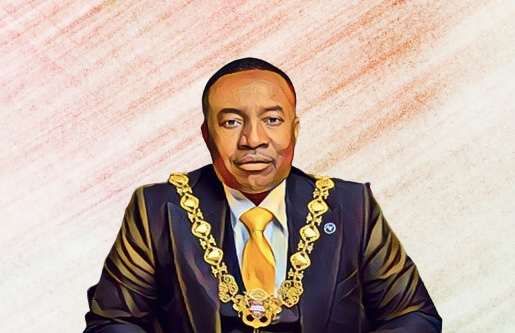Mayor of Harare, Jacob Mafume, has taken a bold step by announcing intentions to control street vending. These plans include creating specific vending zones and implementing stringent no-vending zones within the city. This project attempts to address the unchecked growth of street vendors, which has grown to be a source of conflict for the city’s administration.
The problem of street hawking in Harare has grown into a major obstacle. In Harare, in particular, the central business district (CBD) has become a battleground where traders and city officials frequently conflict. The unrestrained expansion of street vendors is perceived as unfair competition for official enterprises that are well-established and generate cash for the city, in addition to being a disruption.
In an interview with NewsDay, Mayor Mafume expressed his concerns about the current situation. “Vendors find a spot, place a cardboard box there, and start selling items that are also available in our supermarkets, without paying any rates,” Mafume stated. He emphasized the necessity of an organized approach to address this issue: “We cannot allow the city to operate in a free-for-all manner. It’s essential to record, formalize, and allocate specific areas for vendors to operate.”
The mayor’s plan includes the creation of areas where vendors can legally sell their goods and the designation of certain streets as no-go zones for vending activities. This approach is part of a broader strategy to enhance city planning and alleviate the growing strain on urban infrastructure.
“We are envisioning a city where specific activities are confined to designated areas. The current state of urban planning requires profound reconsideration,” Mafume added. He highlighted the complexities of managing a growing city, noting the blurred lines between rural and urban settings that complicate city services.
The expansion of rural districts such as Zvimba, Goromonzi, and Manyame at the periphery of Harare has led to additional pressures. These areas develop residential stands and claim to be under rural district councils, yet they rely heavily on Harare for essential services like education, healthcare, and employment. “Residents of these areas, possibly numbering up to 800,000, heavily utilize Harare’s services while contributing financially to their respective rural district councils,” Mafume explained.
This situation results in a significant burden on Harare’s infrastructure without corresponding revenue support. “These outlying settlements build residential areas without the capacity to provide jobs, leading their residents to flock to Harare, further congesting the city,” said Mafume.
Mayor Mafume is pushing for an expansion of Harare’s borders to incorporate these quickly expanding suburbs in order to address these problems. Better planning and the provision of essential infrastructure, such as schools, clinics, and industrial sectors, would be possible with this modification, all without placing an undue strain on the city’s already limited resources.
The mayor’s move is a big step in the right direction toward fixing the problems caused by the unchecked growth of street vending and its wider effects on Harare’s urban planning. Mayor Mafume hopes to develop a more orderly, just, and effective urban environment by formalizing and registering street vendors inside the CBD, incorporating them into the economic structure, and outlining the bounds of the city’s operations.


